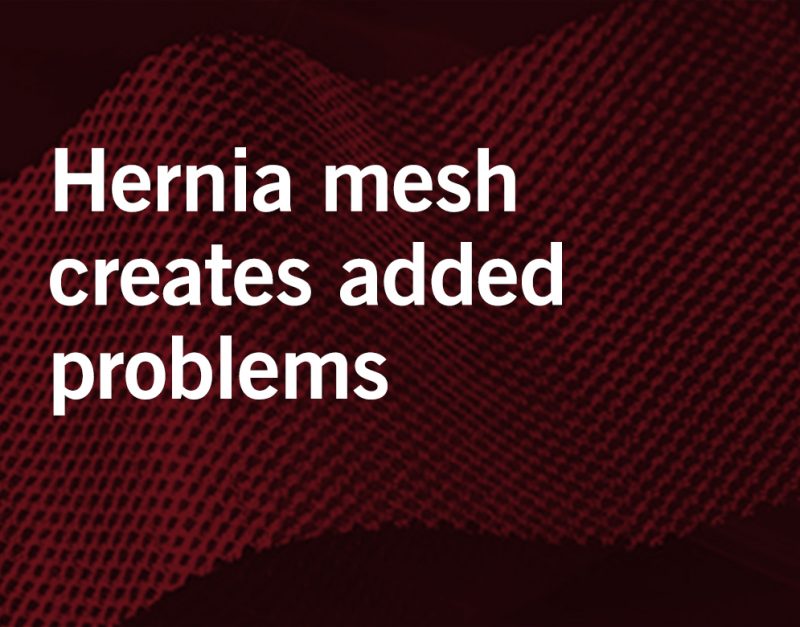 June 16, 2017
June 16, 2017 Surgery Using a Defective Mesh Medical Device to Repair Hernias Can Be Deadly
Hernia surgery, a common procedure in the United States, often involves the use of a mesh medical device to repair the hernia and prevent future hernias from occurring. However, many problems with hernia mesh have been reported to the Food and Drug Administration (FDA), leading to recalls of certain mesh products, such as the Kugel Mesh Hernia Patch. These defective mesh medical devices have the potential to migrate or break apart once in the body, and can cause serious problems such as infection, severe pain, bowel obstruction, bowel perforation, and even death.
What is a Hernia?
Hernias, as defined by the FDA, occur “when an organ, intestine or fatty tissue squeezes through a hole or a weak spot in the surrounding muscle or connective tissue.” The most common types of hernias are:
- Femoral: happens in the upper area of the thigh
- Hiatal: happens inside the abdomen along the upper stomach
- Incisional: happens in a previous surgery site
- Inguinal: most common type of hernia, happens in the inner groin
- Umbilical: happens at the belly button
- Ventral: happens in the abdominal wall
Although some hernias are minor and can be left alone if not causing any problems, serious hernias can only be repaired by surgery. Annually, there are over a million surgeries to repair hernias in the United States, 80% of which are for inguinal hernias. Since hernias frequently reoccur, a mesh medical device is often used.
How are Mesh Medical Devices Used to Repair Hernias?
To prevent internal organs from slipping through weak spots in the muscles, a mesh medical device is implanted at the spot of the hernia to provide extra support to the weakened area by acting as a barrier. The hernia mesh can either be absorbable or non-absorbable. Absorbable meshes are designed to break down and lose strength over time, serving as a temporary reinforcement to the weakened area giving the tissues time to heal and strengthen. Non-absorbable mesh is designed to permanently remain in the body as barrier, preventing future hernias from occurring in that location.
Potential Side Effects of Defective Mesh Medical Devices
Side effects from defective mesh medical devices can be serious and even deadly. Defective hernia meshes, such as the Kugel Mesh Hernia Patch, have been known to break apart or move about after they have been implanted. Once mesh medical devices begin to migrate within the body, they can become imbedded in tissues or organs making them nearly impossible to remove. Side effects from defective mesh medical devices used to repair hernias can include blocking intestines, ripping holes in neighboring organs, causing severe pain and infections, and even death.
How Can Waters Kraus Paul & Siegel Help Victims of Defective Mesh Medical Devices?
The attorneys at Waters Kraus Paul & Siegel have experience representing hundreds of clients in mesh lawsuits. Our lawyers fight for justice for victims of defective mesh medical devices. The attorneys at Waters Kraus Paul & Siegel are committed to aggressively litigating your mesh lawsuit in order to hold the manufacturers of these defective medical devices responsible. If you or a loved one has been injured by a mesh medical device, email us or call 800.226.9880 to speak with the experienced attorneys at Waters Kraus Paul & Siegel about your potential mesh lawsuit.


